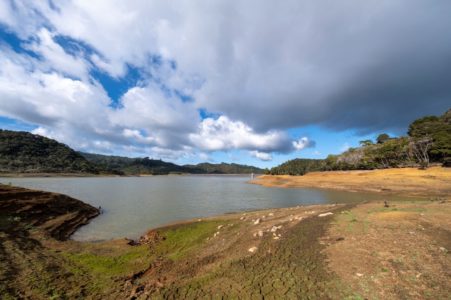
Residents’ efforts to save water and large spending on increasing the city’s water supply means consideration can be given to easing restrictions, mayor Phil Goff says.
Auckland Council on November 26 will consider easing restrictions on water use as the city heads into summer.
“Aucklanders have done a great job in making savings with their water use,” Goff says.
“Collectively we’ve saved about six billion litres.
“That along with $224 million of investment in new water infrastructure, which will increase our water capacity by 96 million litres per day, means we’re now able to consider easing water restrictions.”
Goff says more than 25 million litres of extra water is being drawn from the Waikato River and five million litres from a new Pukekohe treatment plant.
Twelve million litres will result from the Hays Creek treatment plant coming on stream early next year, and 50 million litres will come from the expanded water treatment plant in Tuakau by June 2021.
“The easing of water restrictions is not a license to use unlimited water,” Goff says.
“If there’s runaway demand or the drought seriously worsens then we’ll need to put the restrictions back on, potentially at short notice.
“While this is good news, we are not out of the woods yet.
“We had the driest summer on record this year, followed by a very dry early spring.
“We don’t know yet how dry our summer will be or have certainty that La Nina conditions will bring rain, so a cautious approach is being taken.
“We are not looking to remove restrictions; we would be easing them.”
Watercare liaison councillor Linda Cooper says: “Under the terms of our agreement with the Hamilton City Council, which allows us to use 25 million litres of their Waikato River water take, we cannot have fewer restrictions than the Hamilton community has over the summer.
“The changes we’re considering on Thursday are not to remove restrictions but to reduce them.
“Residential water users would be able to use hoses in an outdoor setting, but only if fitted with a trigger nozzle, and Aucklanders would continue to be strongly urged to conserve water.
“Should drought conditions worsen or if our water use gets out of control, we would need to look at reimposing conditions to ensure the security of our water supply.”









